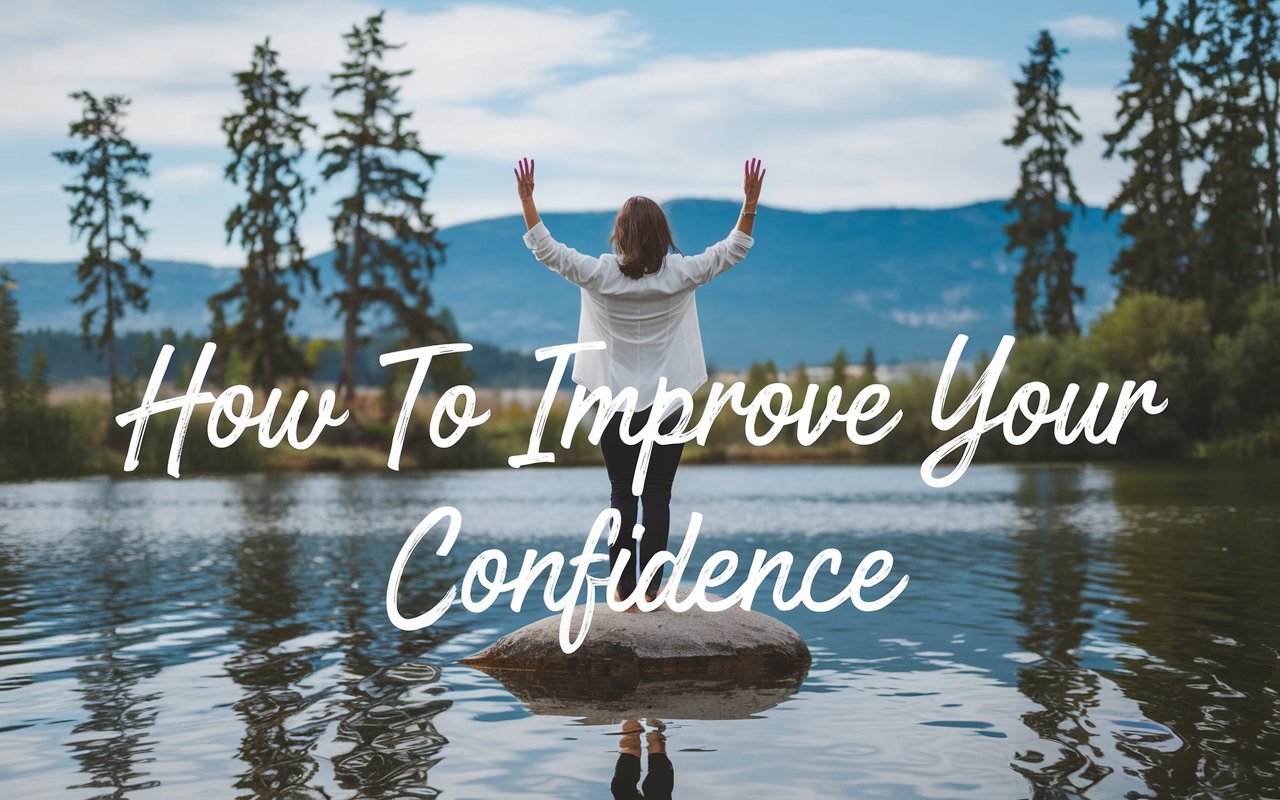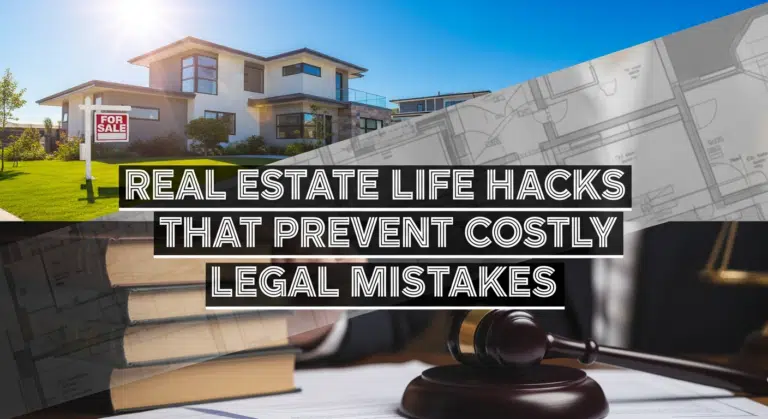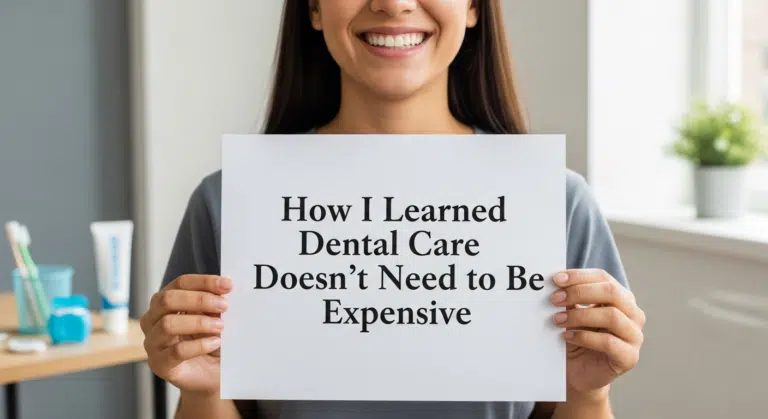Confidence is something we all want more of, but it often feels like an uphill battle. Some people seem to have an abundance of it, while others struggle to find it within themselves.
But here’s the truth: confidence is not an innate trait that only a select few possess. It’s a skill that anyone can develop and strengthen with the right mindset and practices.
In this blog post, I’ll share some effective strategies that have helped me, and many others, build and improve their confidence. Let’s dive in!
Let’s explore each of these strategies in detail so you can start building your confidence today.
Identify and Challenge Negative Thoughts
The first step to improving your confidence is to recognize and challenge the negative thoughts that often run through your mind.
These thoughts can be like a constant background noise, whispering things like “I’m not good enough,” “What if I fail?” or “People will think I’m stupid.” I’ve been there, and I know how powerful these thoughts can be.
But that’s the thing: just because you think something doesn’t mean it’s true.
Start paying attention to your inner dialogue. When you catch yourself thinking negatively, pause and ask yourself, “Is this thought really true? Is there evidence to support it?” These thoughts are often based more in fear than reality.
Replace these negative thoughts with positive, constructive ones. For instance, instead of thinking, “I’ll never get this right,” tell yourself, “I can learn and improve with practice.”
By challenging and changing these thoughts, you can start to build a more positive mindset, which is essential for developing confidence.
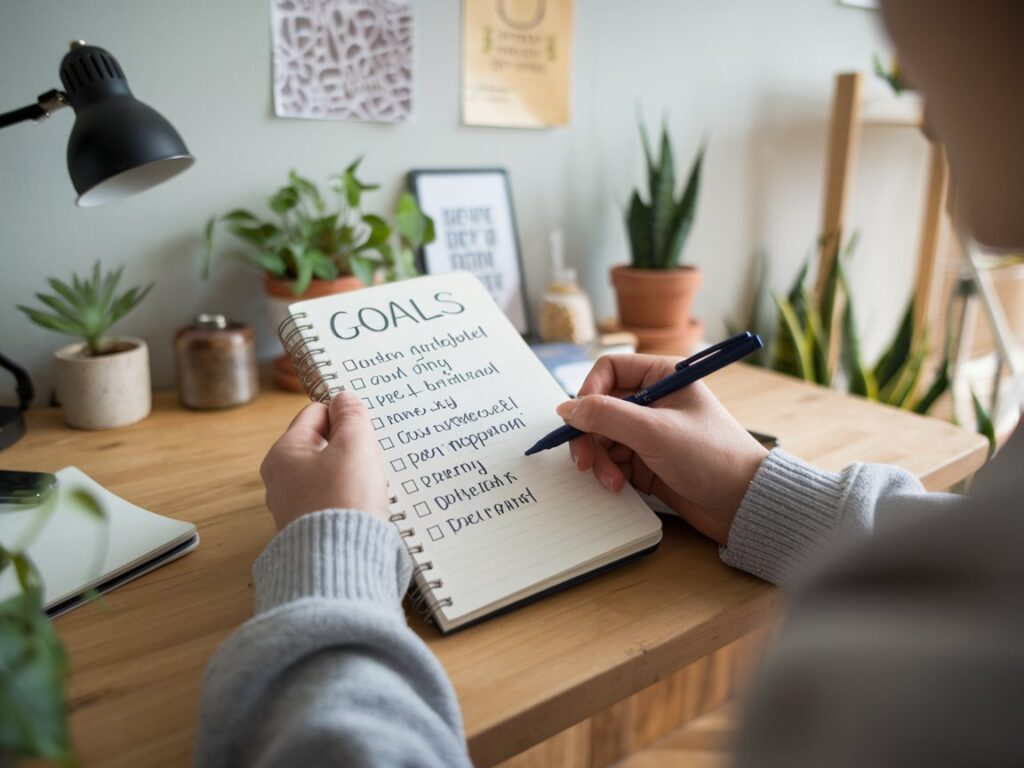
Set Achievable Goals
Confidence comes from seeing yourself succeed, and one of the best ways to do this is by setting achievable goals. These goals should be realistic and manageable, allowing you to experience small victories that build your confidence over time.
When I first started working on my confidence, I found that setting tiny, incremental goals made a huge difference. Each time I achieved one, it felt like a personal win, and those wins started to add up.
Start with something small and specific. If you want to become more confident in speaking up at meetings, set a goal to make one comment or ask one question in your next meeting.
If you’re trying to get in shape, aim to exercise for 10 minutes a day instead of committing to an hour at the gym right away. These small, manageable goals can lead to bigger changes and help you build momentum.
As you achieve each goal, you’ll feel a sense of accomplishment that boosts your confidence and motivates you to keep going.

Improve Your Skills
Confidence often comes from knowing you have the skills and knowledge to handle different situations. When you invest time in improving your skills, whether it’s in your personal or professional life, you naturally start to feel more confident.
Think about an area where you feel less confident—maybe it’s public speaking, writing, or a specific aspect of your job. By focusing on improving in these areas, you can start to build confidence.
Take advantage of opportunities to learn and grow. This might mean taking a course, attending a workshop, or simply practicing regularly. For example, I once struggled with public speaking.
I decided to join a local public speaking club, where I could practice in a supportive environment. Over time, my skills improved, and so did my confidence.
Remember, the more you practice and learn, the more competent and confident you will feel.

Practice Self-Care
Taking care of yourself is not just a luxury; it’s essential for building and maintaining confidence. Self-care is about taking the time to nurture your physical, emotional, and mental well-being.
When you feel good physically and emotionally, it’s much easier to face challenges and believe in yourself.
Make sure you’re getting enough sleep, eating well, and exercising regularly. These basic aspects of self-care have a huge impact on how you feel. Also, take time to relax and do things you enjoy.
This might mean taking a walk in nature, reading a book, or spending time with loved ones.
Being kind to yourself and giving yourself a break can help reduce stress and improve your overall sense of well-being, which is crucial for confidence.

Surround Yourself with Supportive People
The people you spend time with can greatly influence your confidence levels. If you surround yourself with negative, critical, or unsupportive individuals, it’s easy to start doubting yourself.
On the other hand, being around people who are positive, encouraging, and supportive can help you feel more confident.
Seek out friends, family members, or colleagues who believe in you and encourage you to be your best self.
These are the people who will celebrate your successes, offer a listening ear when you need it, and remind you of your strengths.
A supportive network can provide a safe space to take risks and grow, knowing that you have people who are cheering you on.

Take Risks and Embrace Failure
One of the biggest obstacles to confidence is the fear of failure. But the truth is, failure is a natural part of life and an essential ingredient for growth.
If you want to build confidence, you have to be willing to take risks and embrace the possibility of failure. Start by taking small, manageable risks in your daily life.
This might mean trying a new hobby, speaking up in a meeting, or introducing yourself to someone new.
When you take risks and try new things, you prove to yourself that you are capable of more than you think. And even if things don’t go as planned, you gain valuable experience and learn from the process.
Remember, every successful person has experienced failure. What sets her apart is her ability to learn from her mistakes and move on.
By taking risks and embracing failure, you build resilience and confidence.

Body Language and Appearance
How you carry yourself can have a powerful impact on how confident you feel. Body language is a form of non-verbal communication that can influence not only how others perceive you but also how you perceive yourself.
Standing tall, making eye contact, and smiling are all simple yet effective ways to project confidence.
Even if you’re not feeling confident on the inside, adopting confident body language can help boost your confidence.
How you look also affects how you feel about yourself. This isn’t about vanity; it’s about self-respect and self-care.
When you take the time to groom yourself, dress well, and present yourself in a way that makes you feel good, it can boost your confidence.
Choose clothes that make you feel comfortable and confident, and pay attention to how you present yourself.
When you look good, you feel good, and this positive self-image can enhance your confidence.

What are the benefits of developing self-confidence?
Developing self-confidence has numerous benefits that can enhance various aspects of your life. When you have confidence, you believe in your abilities and are more likely to take on new challenges and pursue your goals.
Confidence helps you bounce back from setbacks, build stronger relationships, and achieve success in your personal and professional life.
Healthier relationships
Confidence allows you to communicate openly and assertively, which is essential for healthy relationships. You’re more likely to express your needs, set boundaries, and respect others, leading to more satisfying and meaningful connections.
More professional success
In the workplace, confidence can lead to greater success. Confident individuals are more likely to take initiative, express their ideas, and take on leadership roles. This can lead to career advancement, increased job satisfaction, and recognition from peers and superiors.
Easier transitions
Life is full of changes, and confidence can make transitions smoother. Whether you’re starting a new job, moving to a new city, or navigating personal changes, confidence helps you adapt and face challenges with a positive mindset.
Greater resilience
Confident people are generally more resilient. They are better equipped to handle setbacks and failures, viewing them as opportunities to learn and grow rather than as reasons to give up.

3 downsides of excessive self-confidence
While confidence is a positive trait, too much of it can have downsides. Excessive self-confidence can lead to overestimating your abilities, ignoring potential risks, and alienating others.
Missed opportunities
Overconfidence can make you complacent and less likely to seek out opportunities for growth. You may underestimate the importance of preparation and learning, leading to missed opportunities.
Burnout
Taking on too much due to overconfidence can lead to burnout. You might take on more than you can handle, believing you can do it all, which can lead to stress and exhaustion.
Relationship issues
Excessive confidence can sometimes come off as arrogance, leading to conflicts and strained relationships. It may cause you to dismiss others’ opinions or fail to appreciate the value of collaboration and teamwork.

Are self-confidence and self-esteem the same?
Self-confidence and self-esteem are closely related but not identical. Self-confidence is about believing in your abilities and being assured in your actions. It’s about what you can do.
Self-esteem, on the other hand, is about how you feel about yourself as a person—your overall sense of self-worth. You can be confident in specific areas while still struggling with low self-esteem.
Both are important for a healthy self-image, and building one can help improve the other.

Confidence vs. Insecurity
Confidence and insecurity are like two sides of a coin. Confidence allows you to trust yourself, take action, and pursue your goals without being held back by doubt.
When you’re confident, you feel comfortable in your own skin and are not afraid to be yourself. Insecurity, on the other hand, makes you doubt your abilities, fear judgment, and worry about what others think.
It’s like a constant cloud hanging over you, making you hesitant to take action.
Building confidence is about shifting from insecurity to self-assurance. It’s about learning to trust yourself, value your unique qualities, and feel comfortable in your own skin.
Confidence is not about never feeling insecure—it’s about not letting those insecurities control your life.
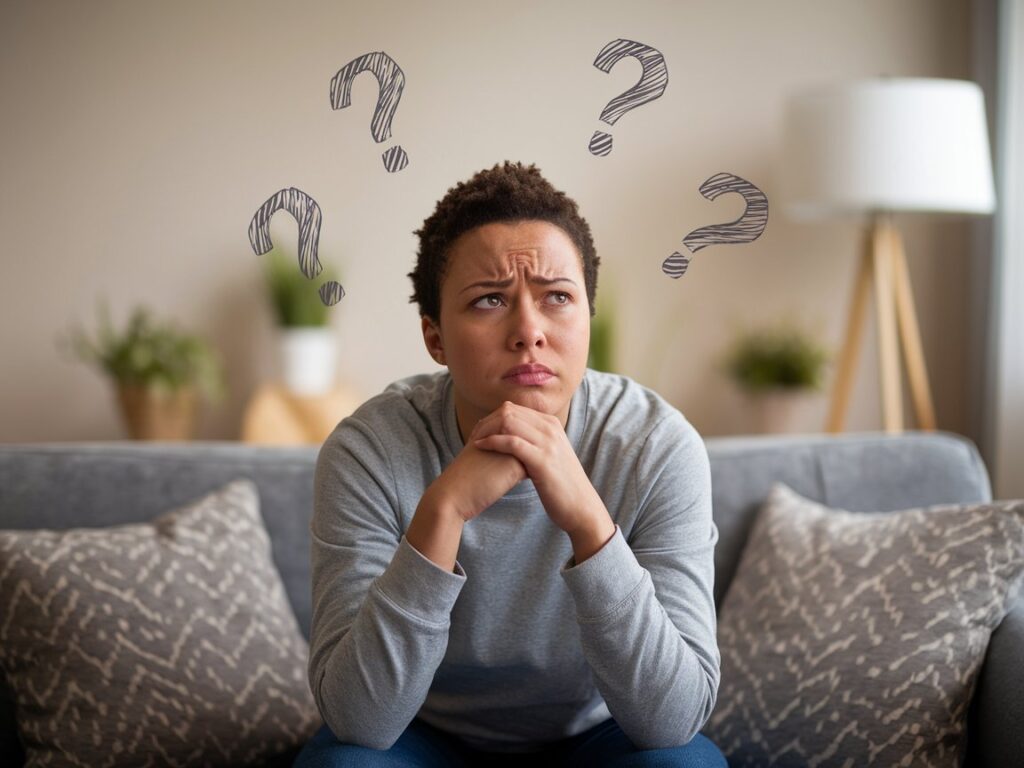
Why is my confidence so weak?
If you find yourself struggling with low confidence, you’re not alone. Many factors can contribute to low confidence, such as past failures, criticism, or unrealistic expectations.
Sometimes, comparing yourself to others can make you feel inadequate. Mental health issues like anxiety or depression can also play a role in weakening your confidence.
Understanding the root causes of your low confidence is the first step towards overcoming it. Reflect on your past experiences, and consider how they might have shaped your beliefs about yourself.
Remember, confidence is not a fixed trait—it can be built and improved over time.
By taking small, consistent steps to challenge negative thoughts, set goals, and practice self-care, you can start to build your confidence and feel better about yourself.
My Personal Story
I’ve had my ups and downs when it comes to confidence. There were times when I felt like I wasn’t good enough, doubted my abilities, and feared failure.
These feelings have held me back from pursuing opportunities or living life to the fullest. But over time, I realized that confidence isn’t about being perfect or never making mistakes.
It’s about believing in yourself, taking risks, and being willing to learn from your experiences.
What helped me was to set small, achievable goals. Each time I achieved a goal, no matter how small, I felt a sense of accomplishment that boosted my confidence.
I also started practicing self-care, which helped me feel better physically and emotionally. Surrounding myself with supportive people who believed in me made a huge difference.
Today, I’m more confident than I’ve ever been, but I know that it’s a journey, and I’m still learning and growing every day.

FAQs About Confidence
How can I build confidence in social situations?
Start by practicing small talk and showing genuine interest in others. Gradually challenge yourself to engage in more social activities. Remember, confidence grows with experience.
Can improving my physical health help boost my confidence?
Yes, taking care of your physical health through regular exercise, a balanced diet, and enough sleep can improve your overall well-being, which in turn can boost your confidence.
How do I deal with criticism without losing my confidence?
View criticism as an opportunity to learn and grow. Focus on constructive feedback and avoid taking things personally. Remember, everyone makes mistakes and has areas for improvement.
Is it possible to have too much confidence?
Yes, excessive confidence can lead to arrogance, missed opportunities, burnout, and relationship issues. It’s important to maintain a balance and remain open to feedback and growth.
How long does it take to build confidence?
Building confidence is a gradual process that varies for each person. Consistent practice, positive self-talk, and learning from experiences can help you improve your confidence over time.
Key Takeaways
- Identify and challenge negative thoughts to create a positive mindset.
- Set achievable goals that help you gain confidence through small wins.
- Improve your skills to feel more capable and self-assured.
- Practice self-care to maintain a balanced and healthy mind.
- Surround yourself with supportive people who lift you up.
- Take risks and embrace failure as a stepping stone to growth.
- Use positive body language and take care of your appearance to boost how you feel.
Confidence is not a destination but a journey. By taking these steps and believing in yourself, you can build the confidence you need to live a fulfilling and successful life. Remember, every small step counts, and with time, you’ll see the progress you’ve made.
